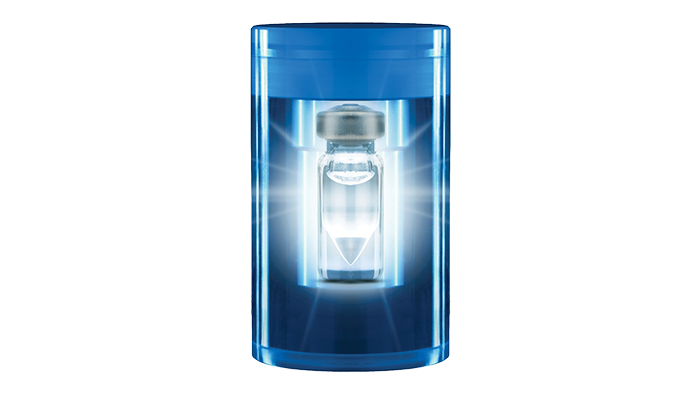Time is critical1
Curative options are inaccessible for many patients with HCC2
Unfortunately, at diagnosis, many people with hepatocellular carcinoma (HCC) are ineligible for curative treatment options, such as liver transplant or resection.2
Many HCC treatment options are unpredictable and have adverse effects on liver function and healthy liver tissue. This risk is compounded in patients with a cirrhotic background.3,4
Take a step closer to curative surgery

TheraSphereTM Y90 Therapy as neoadjuvant to transplantation/resection in HCC.
Personalised neoadjuvant TheraSphereTM Y90 Therapy empowers multidisciplinary teams to unlock the best treatment options1,7
- Salem R, et al. Yttrium-90 Radioembolization for the Treatment of Solitary, Unresectable HCC: The LEGACY Study. Hepatology. 2021 Nov;74(5):2342-2352.
- Kutlu R, Karatoprak S. Radioembolization for Hepatocellular Carcinoma in Downstaging and Bridging for Liver Transplantation. J Gastrointest Cancer. 2020 Dec;51(4):1157-1164.
- European Association for the Study of the Liver. Electronic address: easloffice@easloffice.eu; European Association for the Study of the Liver. EASL Clinical Practice Guidelines: Management of hepatocellular carcinoma. J Hepatol. 2018 Jul;69(1):182-236.
- Cheng JC, et al. Radiation-induced liver disease after radiotherapy for hepatocellular carcinoma: clinical manifestation and dosimetric description. Radiother Oncol. 2002 Apr;63(1):41-45.
- Reig M, et al. BCLC strategy for prognosis prediction and treatment recommendation: The 2022 update. J Hepatol. 2022 Mar;76(3):681-693.
- Vogel A, Martinelli E; ESMO Guidelines Committee. Electronic address: clinicalguidelines@esmo.org; ESMO Guidelines Committee. Updated treatment recommendations for hepatocellular carcinoma (HCC) from the ESMO Clinical Practice Guidelines. Ann Oncol. 2021 Jun;32(6):801-805.
- Lewandowski RJ, et al. Radiation Segmentectomy: Potential Curative Therapy for Early Hepatocellular Carcinoma. Radiology. 2018 Jun;287(3):1050-1058.
- Kim HC. Radioembolization for the treatment of hepatocellular carcinoma. Clin Mol Hepatol. 2017;23(2):109-114.
- Manas D, Bell JK, Mealing S, Davies H, Baker H, Holmes H, Hubner RA. The cost-effectiveness of TheraSphere in patients with hepatocellular carcinoma who are eligible for transarterial embolization. Eur J Surg Oncol. 2021 Feb;47(2):401-408.
- Gabr A, et al. Liver Transplantation Following Yttrium-90 Radioembolization: 15-Year Experience in 207-Patient Cohort. Hepatology. 2021 Mar;73(3):998-1010.
- Garin E, et al. Personalised versus standard dosimetry approach of selective internal radiation therapy in patients with locally advanced hepatocellular carcinoma (DOSISPHERE-01): a randomised, multicentre, open-label phase 2 trial. Lancet Gastroenterol Hepatol. 2021 Jan;6(1):17-29.
- Dhondt E, et al. 90Y Radioembolization versus Drug-eluting Bead Chemoembolization for Unresectable Hepatocellular Carcinoma: Results from the TRACE Phase II Randomized Controlled Trial. Radiology. 2022 Jun;303(3):699-710.
- Salem R, et al. Y90 Radioembolization Significantly Prolongs Time to Progression Compared With Chemoembolization in Patients With Hepatocellular Carcinoma. Gastroenterology. 2016 Dec;151(6):1155-1163.e2.
- Salem R, et al. 992P Yttrium-90 glass microspheres in the treatment of early and advanced hepatocellular carcinoma: The LEGACY study. Annal Oncol. 2020;31(SUPPLEMENT 4), S692-S693.
- Lewandowski RJ, et al. A comparative analysis of transarterial downstaging for hepatocellular carcinoma: chemoembolization versus radioembolization. Am J Transplant. 2009 Aug;9(8):1920-1928.
- Gabr A, et al. Outcomes of Surgical Resection after Radioembolization for Hepatocellular Carcinoma. J Vasc Interv Radiol. 2018 Nov;29(11):1502-1510.e1.
- Kim E, et al. Radiation segmentectomy for curative intent of unresectable very early to early stage hepatocellular carcinoma (RASER): a single-centre, single-arm study. Lancet Gastroenterol Hepatol. 2022 Sep;7(9):843-850.
Abbreviations
AE, adverse event; BCLC, Barcelona Clinic Liver Cancer; CI, confidence interval; EASL, European Association for the Study of the Liver; ECOG, Eastern Cooperative Oncology Group; HCC, hepatocellular carcinoma; HR, hazard ratio; ITT, intention to treat; mRECIST, modified Response Evaluation Criteria in Solid Tumors; ORR, objective response rate; OS, overall survival; PVT, portal vein thrombosis; RFS, recurrence-free survival; TACE, transarterial chemoembolisation; TTP, time to progression; UNOS, United Network for Organ Sharing; Y90, yttrium-90.
Caution:
The law restricts these devices to sale by or on the order of a physician. Indications, contraindications, warnings, and instructions for use can be found in the product labelling supplied with each device or at www.IFU-BSCI.com. Products shown for INFORMATION purposes only and may not be approved or for sale in certain countries. This material not intended for use in France.
















